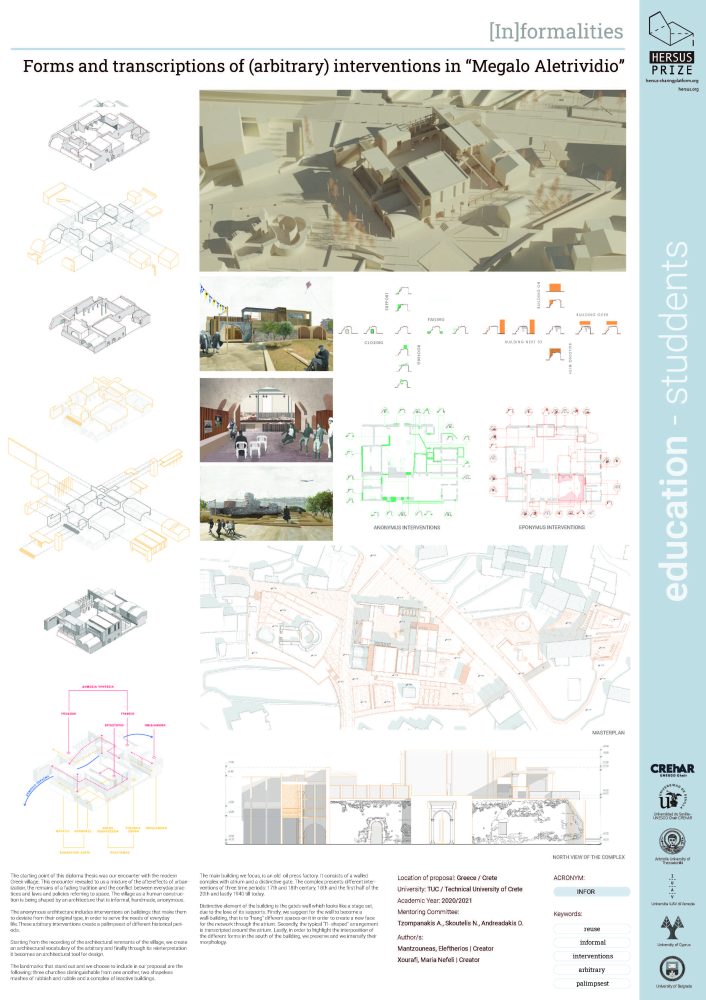Forms and transcriptions of (arbitrary) interventions in “Megalo Atrevidio”
Education - Students / Shortlisted

The starting point of this diploma thesis was our encounter with the modern Greek village. This encounter revealed to us a mixture of the aftereffects of urbanization, the remains of a fading tradition and the conflict between everyday practices and laws and policies referring to space. The village as a human construction is being shaped by an architecture that is informal, handmade, anonymous.
The anonymous architecture includes interventions on buildings that make them to deviate from their original type, in order to serve the needs of everyday life.These arbitrary interventions create a palimpsest of different historical periods. Starting from the recording of the architectural remnants of the village, we create an architectural vocabulary of the arbitrary and finally through its reinterpretation it becomes an architectural tool for design.
The landmarks that stand out and we choose to include in our proposal are the following: three churches distinguishable from one another, two shapeless mashes of rubbish and rubble and a complex of inactive buildings.
The main building we focus, is an old oil press factory. It consists of a walled complex with atrium and a distinctive gate. The complex presents different interventions of three time periods: 17th and 18th century, 18th and the first half of the 20th and lastly 1940 till today.
Distinctive element of the building is the gate’s wall which looks like a stage set, due to the lose of its supports. Firstly, we suggest for the wall to become a wall-building, that is to “hang” different spaces on it in order to create a new face for the network through the atrium. Secondly, the typical “Π- shaped” arrangement is transcripted around the atrium. Lastly, in order to highlight the interposition of the different forms in the south of the building, we preserve and we intensify their morphology.
Author: Eleftherios Mantzouneas, Maria Nefeli Xourafi